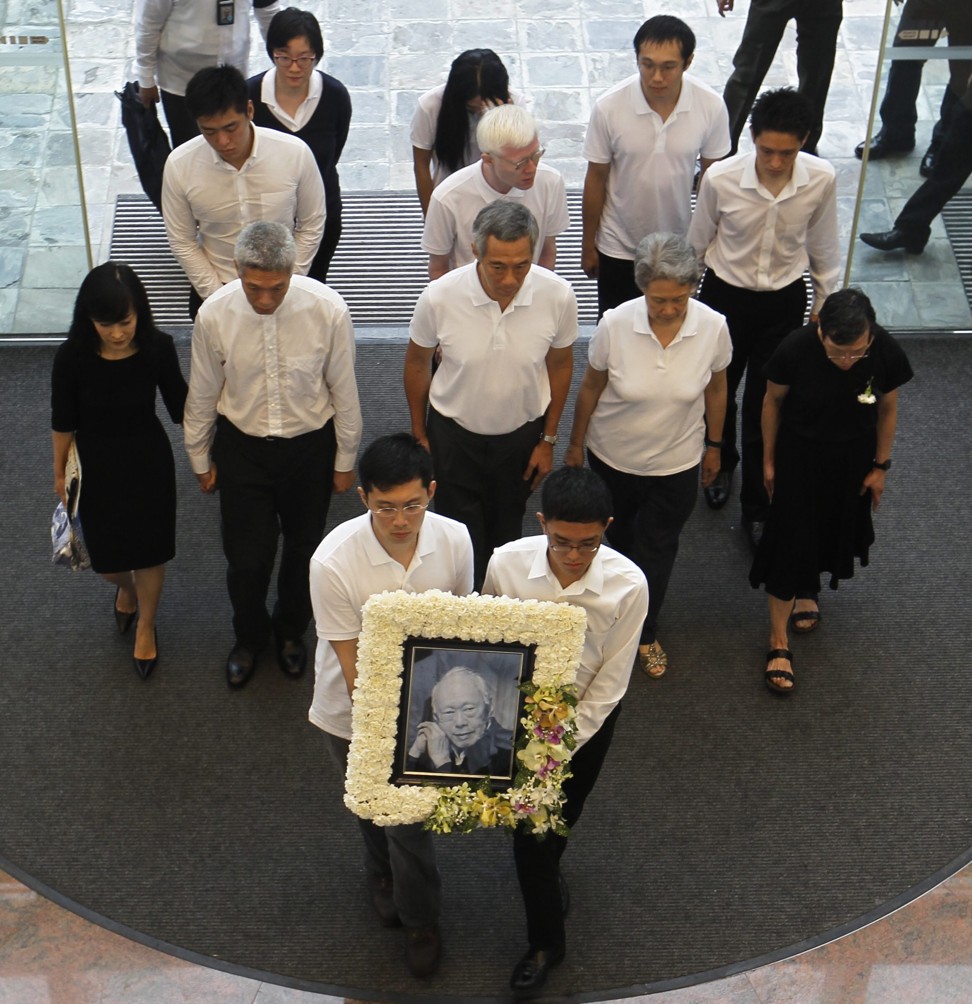
Sons, mothers, money and memory: theories about the Lee Kuan Yew family feud
The relatives of Singapore’s late founding leader have descended into publicly fighting over his estate. As the Lion City is gripped by the drama – and left to speculate on its undercurrents – questions arise about governance
In Singapore, the President’s Scholarship represents the pinnacle of educational achievement and the promise of a high-flying career in public service. Awarded to a select few top performers in each pre-university cohort, it reflects Singapore’s belief in harnessing elite talent, an obsession of its late founding Prime Minister, Lee Kuan Yew.
Lee’s family is full of President’s Scholars. He and his wife, both Cambridge-educated lawyers, had three children. All three became President’s Scholars. As ordained, they dutifully rose to the top of their respective spheres. The scions of other Southeast Asian political families – the Marcoses of the Philippines, the Suhartos of Indonesia or the Razaks of Malaysia – included at least some individuals who let their hair down, to put it mildly. But the Lees of Singapore were the goody-two-shoes of the block, the epitome of self-discipline, diligence and responsibility.
Family quarrels, cold wars: emails put Lee Kuan Yew’s private life on show
Last Wednesday morning, however, Singapore was rocked by the revelation of an explosive feud within the Lee family. The spat had surfaced last year, then appeared to subside. But this time, out of the blue, it was clear that things had reached breaking point.
The dysfunctional relationship among the Lee siblings might have stayed behind closed doors but for two inconvenient details. First, they were fighting over the house of Lee Kuan Yew, the man who was virtually synonymous with Singapore for five decades. Second, the eldest among the siblings is the current Prime Minister of Singapore, Lee Hsien Loong.
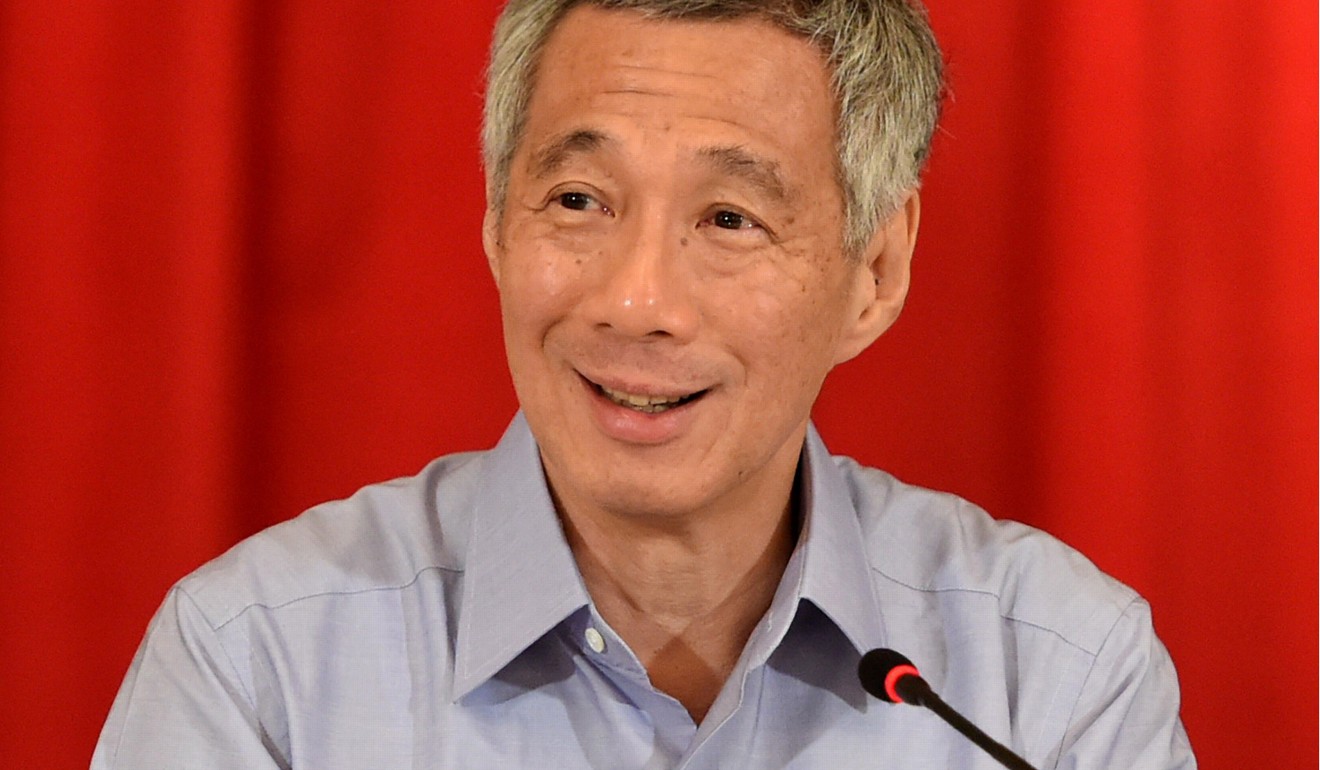
Since Wednesday, Singaporeans have been glued to their social media feeds barely able to believe the volleys of accusations and counter-accusations between the Lees. For Hong Kong-based Singaporean writer Toh Han Shih, the fallout was reminiscent of King Lear or the Mahabharata. The comparison is not out of place, because in Singapore, dominated by the Lees for most of its citizens’ lifetimes, this really is a drama of epic proportions; a storm among the gods.
A FAMILY PORTRAIT
Lee Kuan Yew died in March 2015. He was known for his intellect, determination, and hard edge. Lee Hsien Loong, who became Prime Minister in 2004, is steeped in the same sense of duty, but without his father’s killer instincts. In addition to leading the extremely effective People’s Action Party (PAP), he is personally popular. The PAP’s strong showing in the last general election, scoring 70 per cent of the popular vote, was partly attributed to public sympathy for Lee Hsien Loong after he had lost his father.
Was Lee Kuan Yew rushed into signing his last will?
He lost his first wife to a heart attack when they were in their early 30s, not long after giving birth to a son who suffered from albinism. He later married Ho Ching, a scientist – and President’s Scholar. She rose to become chief executive of Singapore’s mammoth investment fund, Temasek Holdings. She has held that post for the past 15 years. Last year, Ho Ching ranked number 30 in the Forbes’ list of most powerful women in the world.
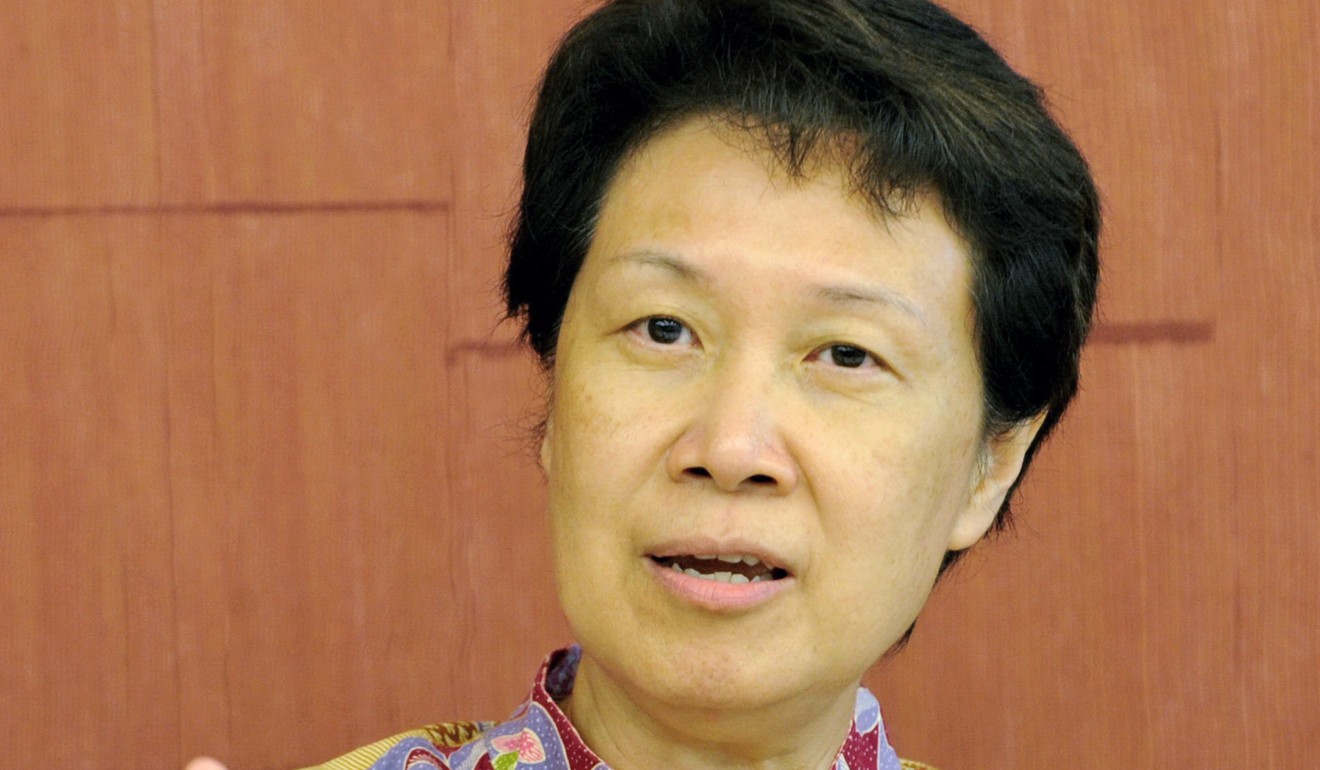
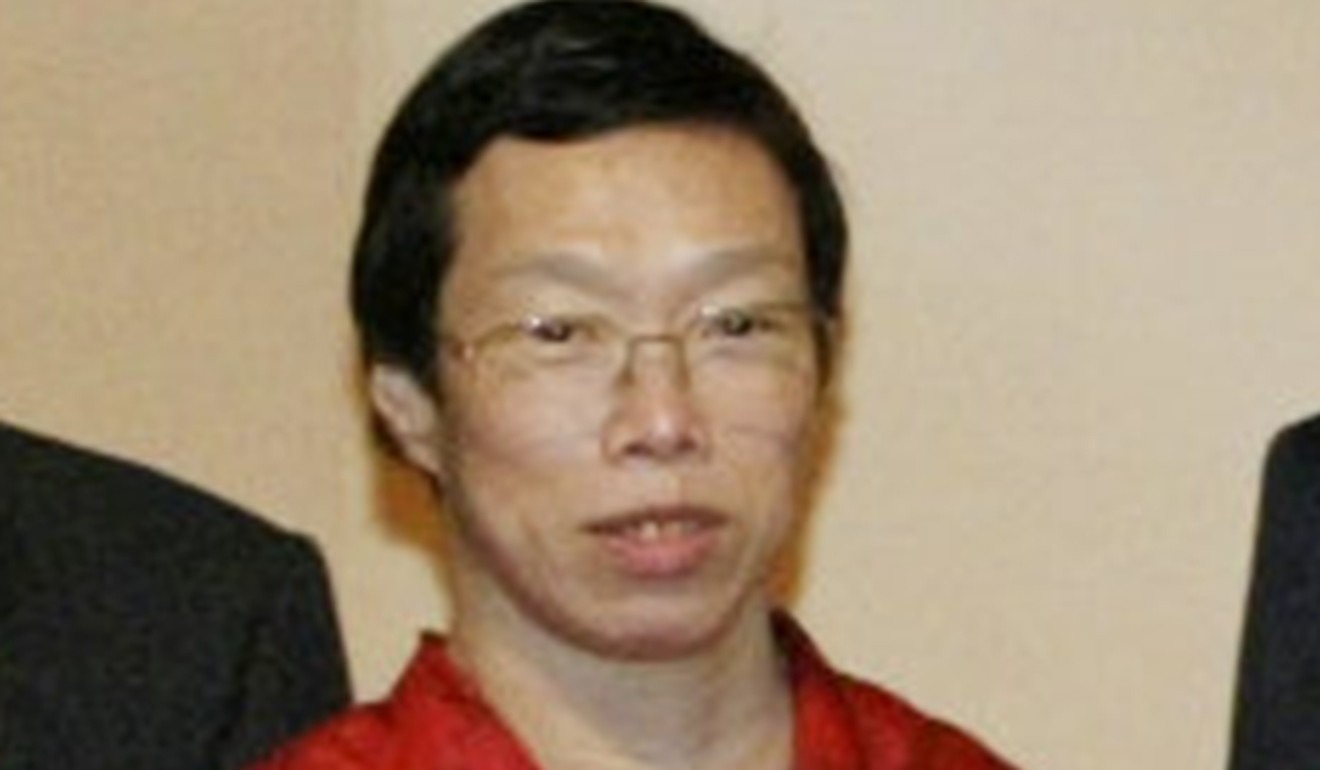
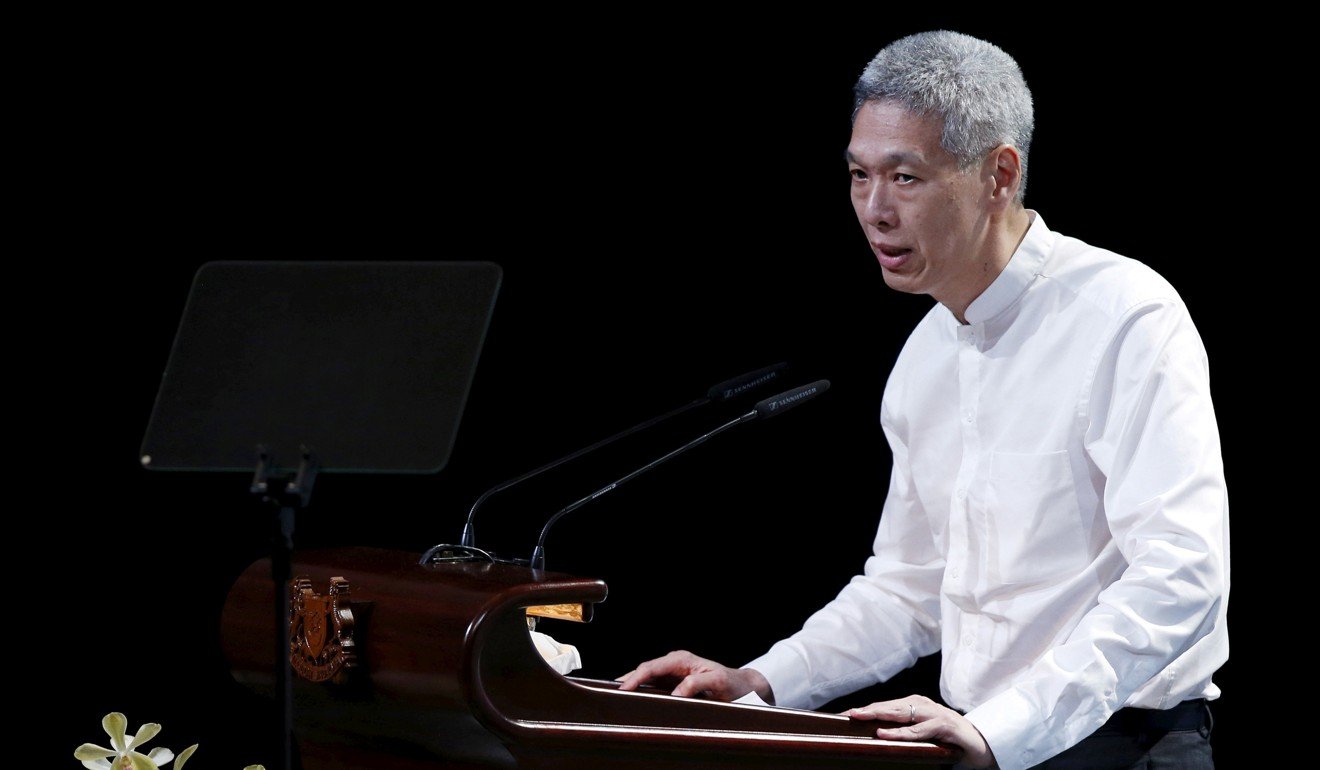
THE EARTHQUAKE
Nothing in the Lee family biography or background prepared Singaporeans for last Wednesday’s eruption. While most of Singapore was still asleep, the Prime Minister’s two siblings released a six-page statement titled “What has happened to Lee Kuan Yew’s values?”, which they posted on their respective Facebook accounts.
They declared they no longer trusted Lee Hsien Loong as a brother and a leader. “We have lost confidence in him,” the pair said. They also claimed that they “have felt threatened by Hsien Loong’s misuse of his position and influence over the Singapore government and its agencies to drive his personal agenda”.
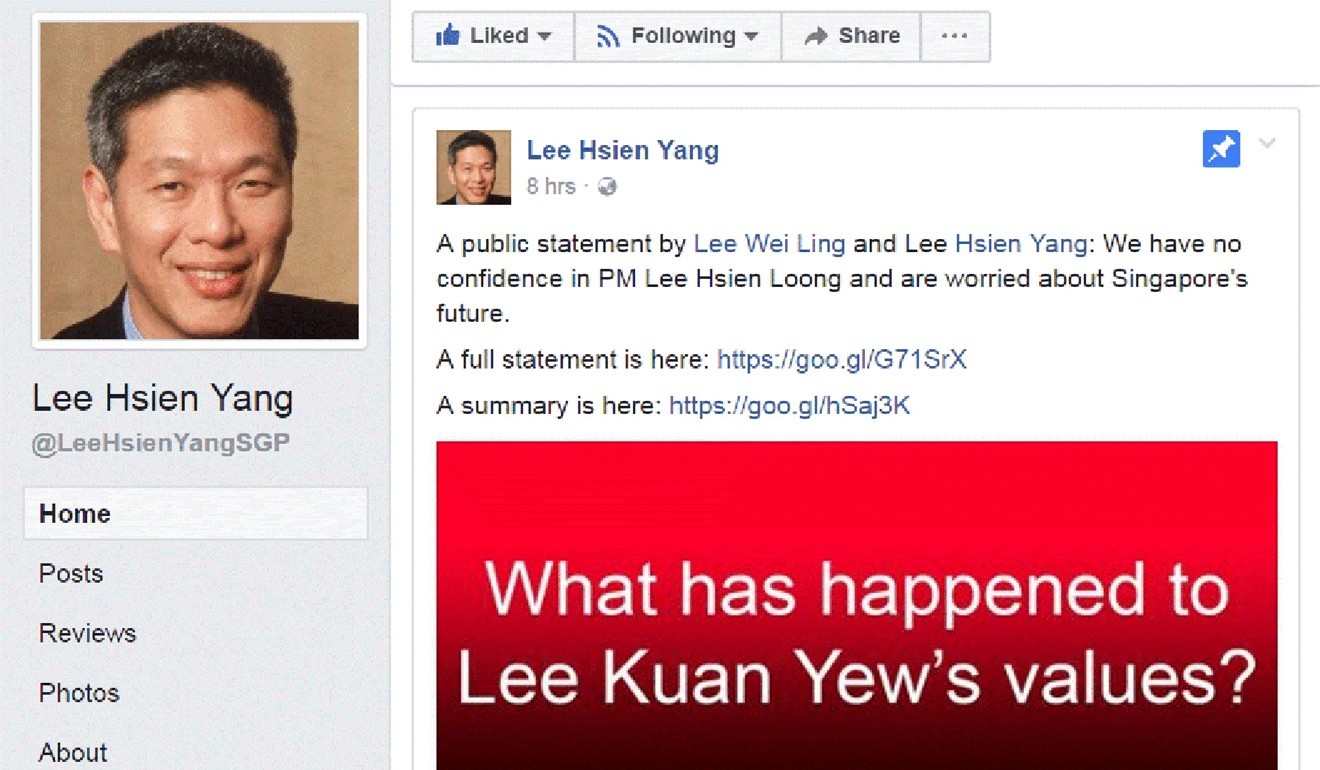
This difference of opinion first surfaced soon after the patriarch’s passing, but only this week did it become apparent how deep the rift runs.
Since Wednesday, shots have been fired back and forth. Lee Hsien Loong first said he would address the matter when he returns from leave. But on Thursday he decided he could not wait, releasing a summary of statements he had made under oath to a ministerial committee looking into the matter of the house. This “summary”, exceeding 3,800 words, suggested that Lee Hsien Yang and Lee Suet Fern had an improper role in Lee Kuan Yew’s last will, and that the father may not have even known the details of what he was signing. The younger siblings dispute this. Lee Wei Ling called her brother’s claims “mischievous and dishonest”.
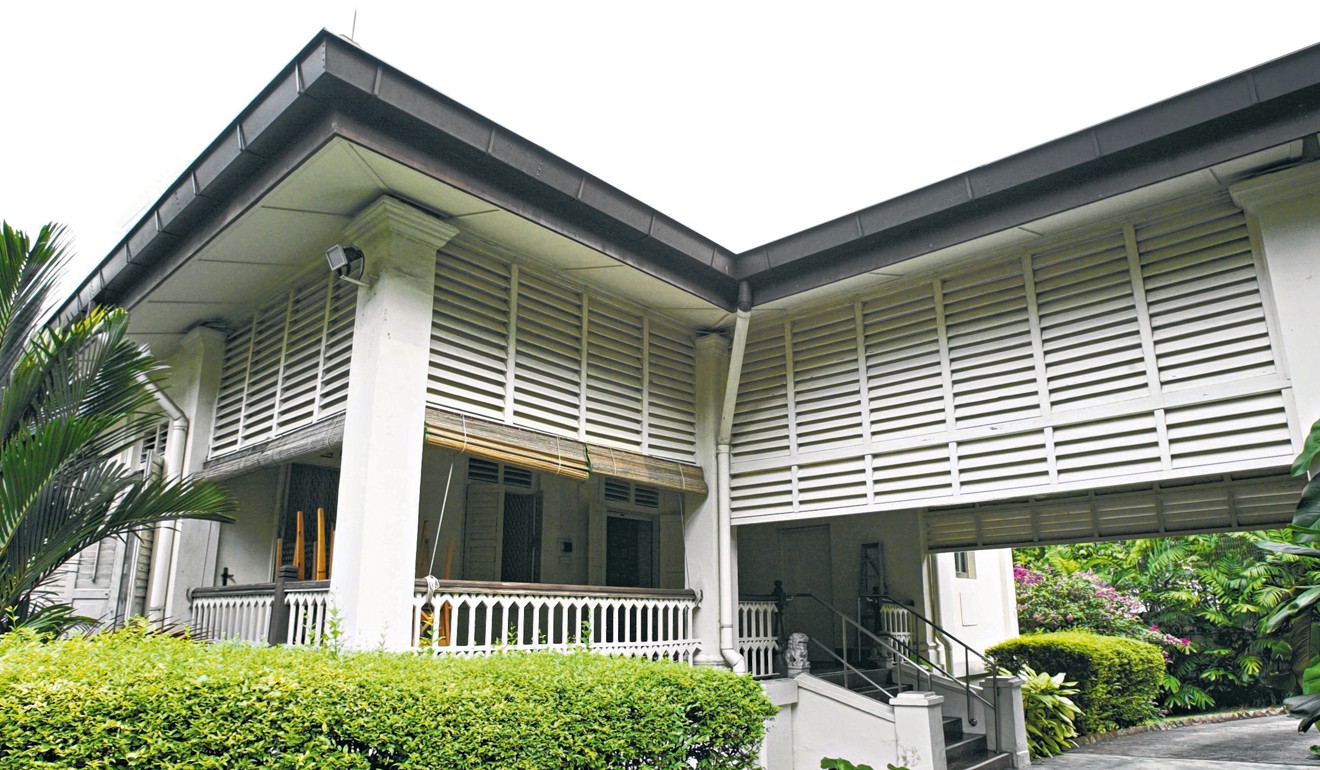
As statement after statement continues to emerge, the details of the dispute are getting more and more intricate. But what most Singaporeans still find hard to fathom is why the conflict has taken such an extreme turn. The last time the three siblings were seen together in public was during their father’s funeral.
The two sons, the distraught daughter, and Lee’s grandchildren, were the picture of quiet, dignified grief during the eight days of national mourning. They wore simple white T-shirts and black pants and they greeted mourners untiringly. The brothers gave elegant eulogies, every word chosen with care.
This week, Singaporeans have been equally attentive to the Lees’ utterances, but for very different reasons. Many are hooked on the sheer entertainment value of this real-life soap opera. Others are distressed at the lack of decorum on display. One reader posted on Lee Hsien Yang’s Facebook page, “Why the hell are you taking this to social media like some teenage kid who needs validation from strangers?”
Indeed, even as the plot thickens, the “why” question still evades most observers. There are at least three overlapping theories that help explain why the players are so worked up.
1. DOES FATHER KNOW BEST?
The most straightforward theory is that this is a deep dispute about what Lee Kuan Yew would have wanted – and how much this should matter.
Number 38 Oxley Road is a bungalow just outside the shopping district of Orchard Road. It was built more than a century ago. Damp rises up the walls because the house has no foundations.
Lee Kuan Yew was more concerned about creeping corruption than rising damp. To avoid overly helpful contractors, he resisted renovating the house.
Lee Kuan Yew’s daughter releases private emails in feud over estate
When I visited the house with a few fellow journalists at the invitation of Lee Wei Ling a few years ago, it was like travelling back in time. The furniture was simple. There were mismatched chairs in the dining room. One bathroom still had its traditional ham daan gong, the typical salted egg clay urn to store water for bathing. A modern shower had been added only a few years earlier.
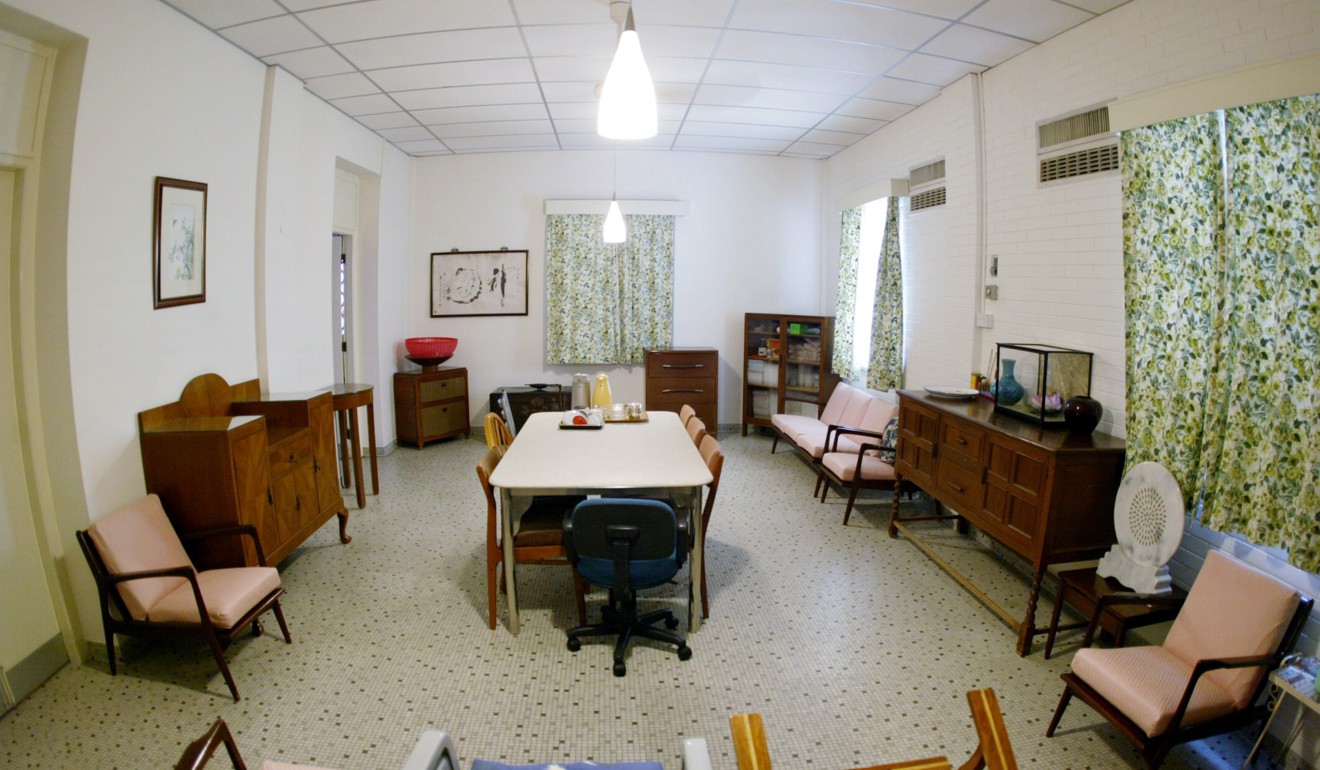
He also had practical reasons. He had seen other famous people’s houses descending into disrepair. And he and his wife sympathised with his neighbours, who for security reasons had never been allowed to build high-rise blocks as long as his house was there.
His first wills included a demolition clause making his wish explicit. It was also in his final will. It turns out, however, that it was not in his penultimate will. Lee Hsien Loong said that after Cabinet colleagues had explained their point of view, Lee Kuan Yew agreed to drop the demolition clause.
Lee Hsien Loong is unhappy that it somehow found its way back into the final will. To him, his father had already shown he was open to idea of preserving the house. To his siblings, however, Lee Hsien Loong is betraying his father’s express wishes.
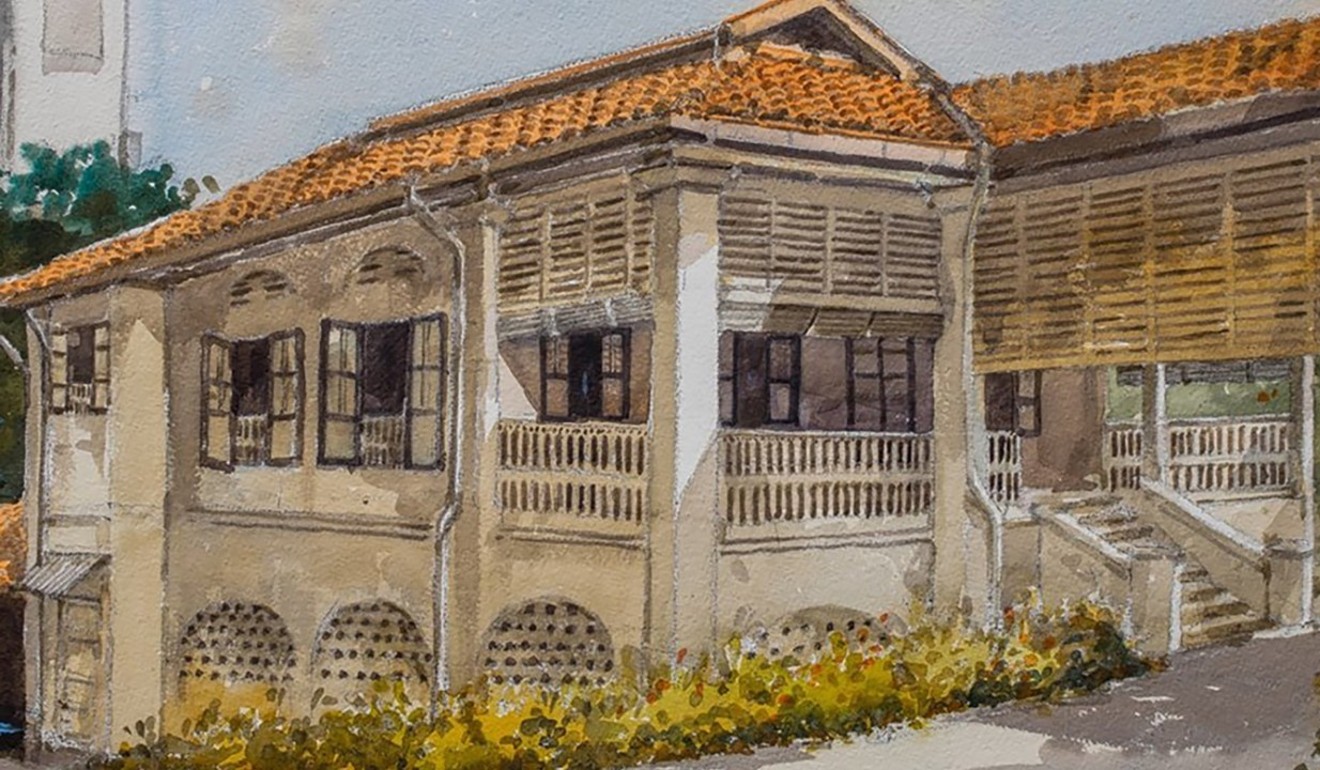
At first, it looked like the dispute was just about how best to honour the past. But it’s also become about who stands to benefit from the Lee legacy.
In Lee Wei Ling’s first salvo about the house, fired off in a Facebook post last year that she later took down, she referred to her brother as wanting to “establish a dynasty”. Most people didn’t know what to make of it.
The “dynasty” charge had been levelled by critics a generation earlier, when Lee Hsien Loong first entered politics. But it didn’t seem to make sense when he was not far from retirement.
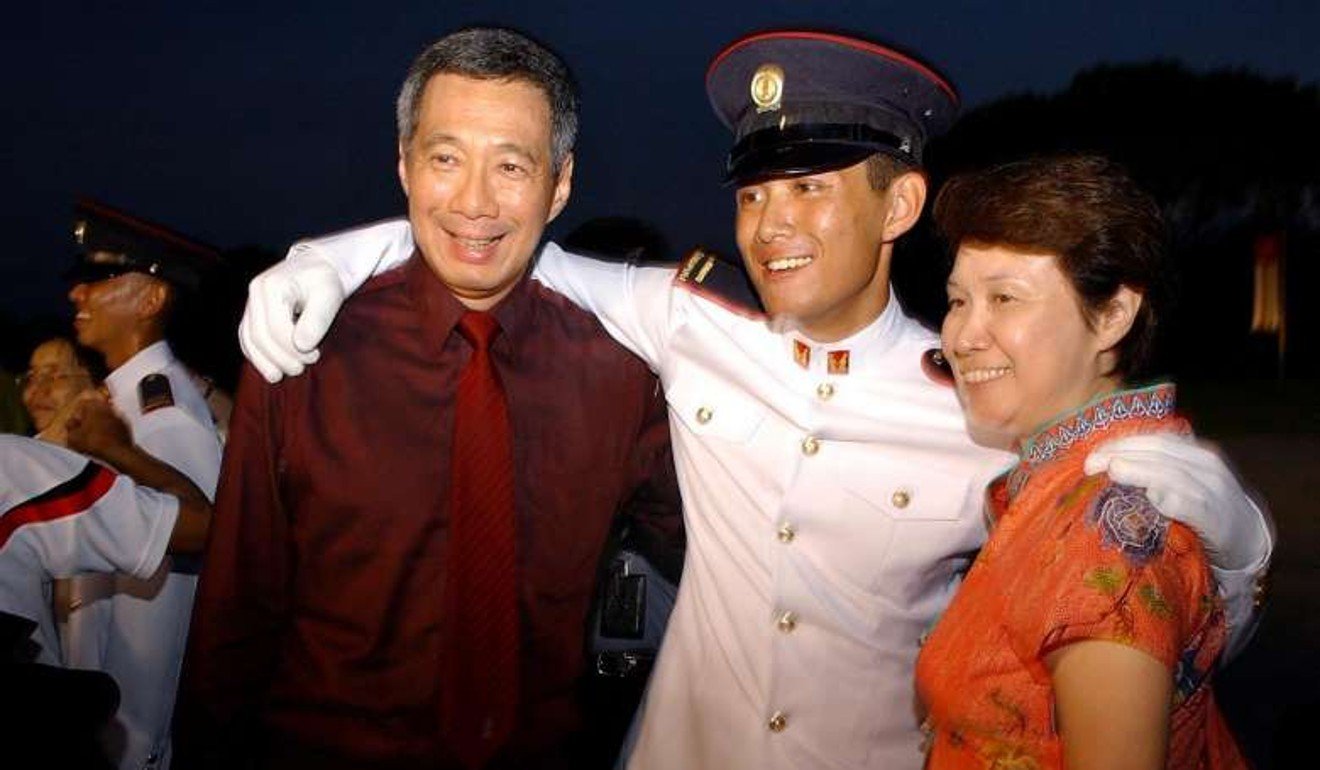
Lee family feud: Singapore PM’s siblings fear his ‘harassment’
That statement was somewhat weaker than what his cousin issued. Li Shengwu, the son of Lee Hsien Yang, joined the fray on Friday. He said he would never go into politics and added, “I believe that it would be bad for Singapore if any third generation Lee went into politics. The country must be bigger than one family.” Li Shengwu has a degree from Oxford University and a doctorate from Stanford University, and is now an economics researcher at Harvard University.
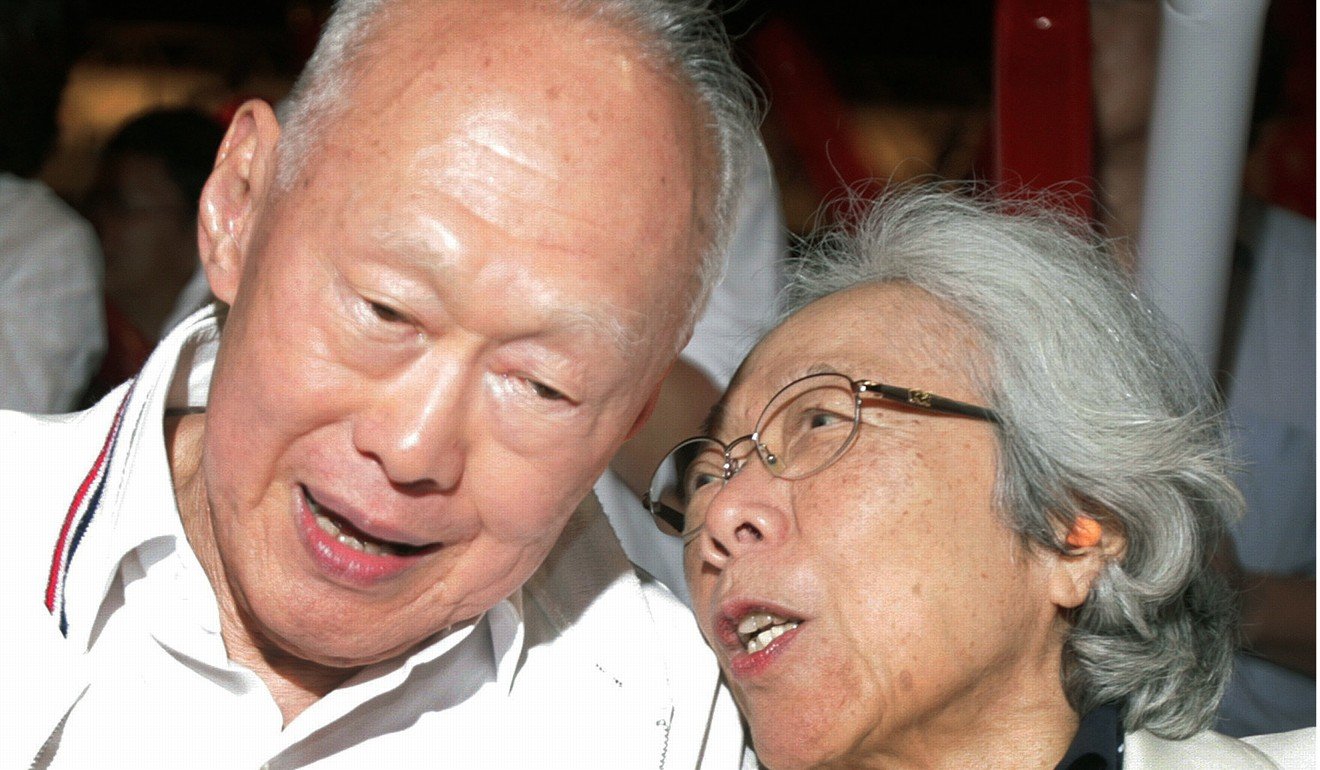
What is clear, however, is that the women are playing a central role. The missive from Lee Wei Ling and Lee Hsien Yang made it clear that they view Ho Ching as their brother’s co-conspirator. Conversely, Lee Hsien Loong’s most damning accusations have been levelled at Lee Suet Fern. Six of the nine questions he posed at the end of the statement have to do with her involvement in the making of Lee Kuan Yew’s last will. The most stinging suggested that Lee Suet Fern improperly got her law firm involved despite being an interested party. When Lee Kuan Yew and his wife were alive, the two daughters-in-law were neither friends nor enemies, said a source who knew both. “They had to get along or else Mr and Mrs Lee would have noticed,” said the source. It may be different now.
3. IT’S ABOUT THE MONEY
Just when we thought that the dispute was all about family pride and nothing to do with the multimillion-dollar value of the Lee Estate, Lee Hsien Loong’s Thursday statement hinted otherwise.
He revealed that Lee Kuan Yew had decided, in late 2012, to give his unmarried daughter an extra share of the estate instead of dividing everything equally among the three children. However, the final will – which the Prime Minister said was made with the close and secretive guidance of Lee Hsien Yang and his wife – reverted to the equal-share formula, in addition to reinstating the demolition clause.
Lee Hsien Loong said Lee Wei Ling was upset enough about this to confide in his wife, Ho Ching, that she felt “played out”.
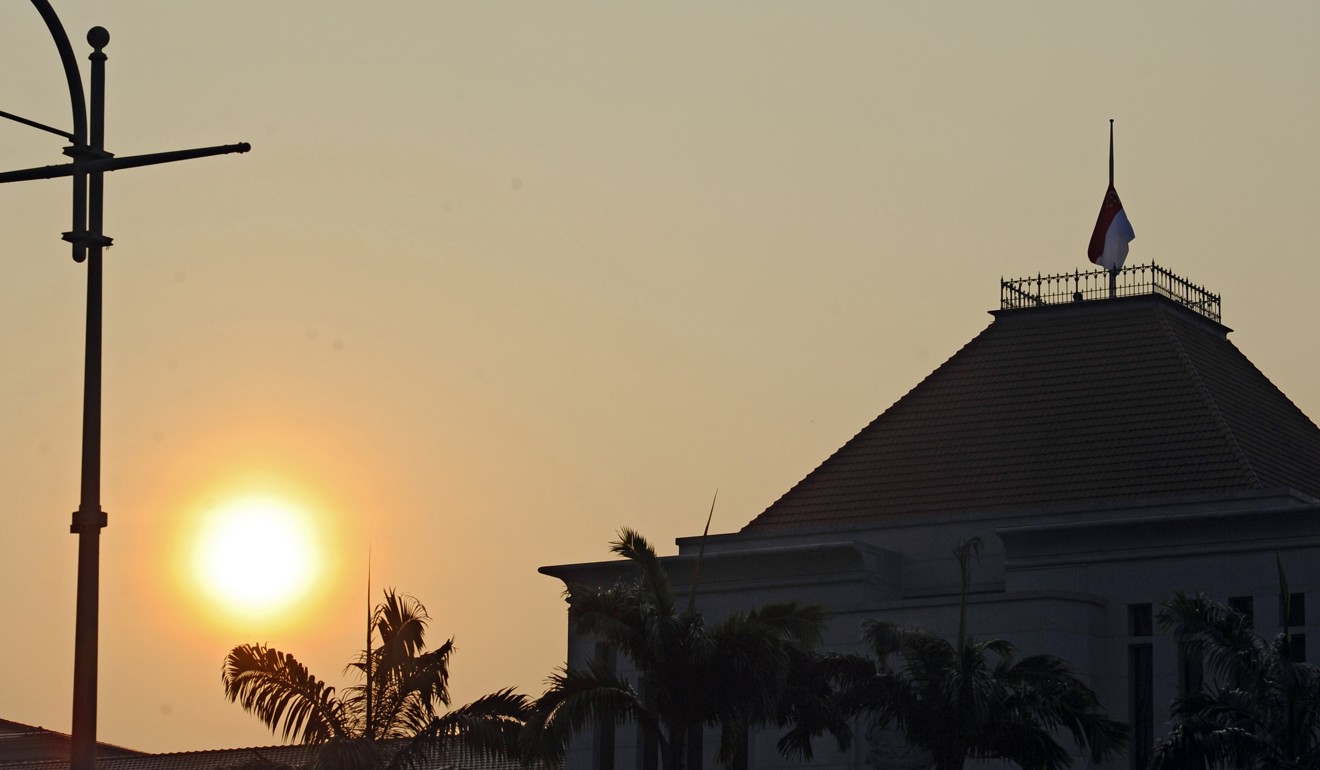
WIDER IMPLICATIONS
While the raw human drama is the most engrossing aspect of the feud, it also raises more serious issues about governance in Singapore. The younger Lee siblings allege that the country’s most powerful man and woman have abused their positions. Lee Hsien Loong had promised that he would remove himself from Cabinet deliberations regarding the future of their family home. The siblings say they were therefore shocked to learn of the existence of a ministerial committee, with which the Prime Minister was dealing. “Hsien Loong, despite his undertakings to recuse himself, proceeded to make extensive representations to the Committee,” they said.
Singapore PM’s family feud deepens: grandsons weigh in
The siblings’ allegations about Ho Ching are even more serious and go well beyond the scope of the current dispute. “Singapore has no such thing as the wife of the prime minister being a ‘first lady’,” they noted.
They pointed out that their own mother, as a wife of a prime minister from 1959 to 1990, judiciously avoided the limelight and confined herself to the role of private supporter and adviser.
“She lived discreetly, and set a high bar for the conduct of a prime minister’s wife. She would never instruct Permanent Secretaries or senior civil servants,” they said. “The contrast between her and Ho Ching could not be more stark. While Ho Ching holds no elected or official position in government, her influence is pervasive, and extends well beyond her job purview.”
If there is one thing that the Lee Hsien Loong government has in common with that of his father, it is that it does not take attacks on its integrity lightly. The government has not yet responded to these allegations. One doesn’t need to be a President’s Scholar to realise that this fight isn’t over. ■



